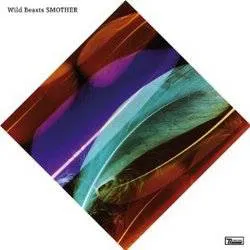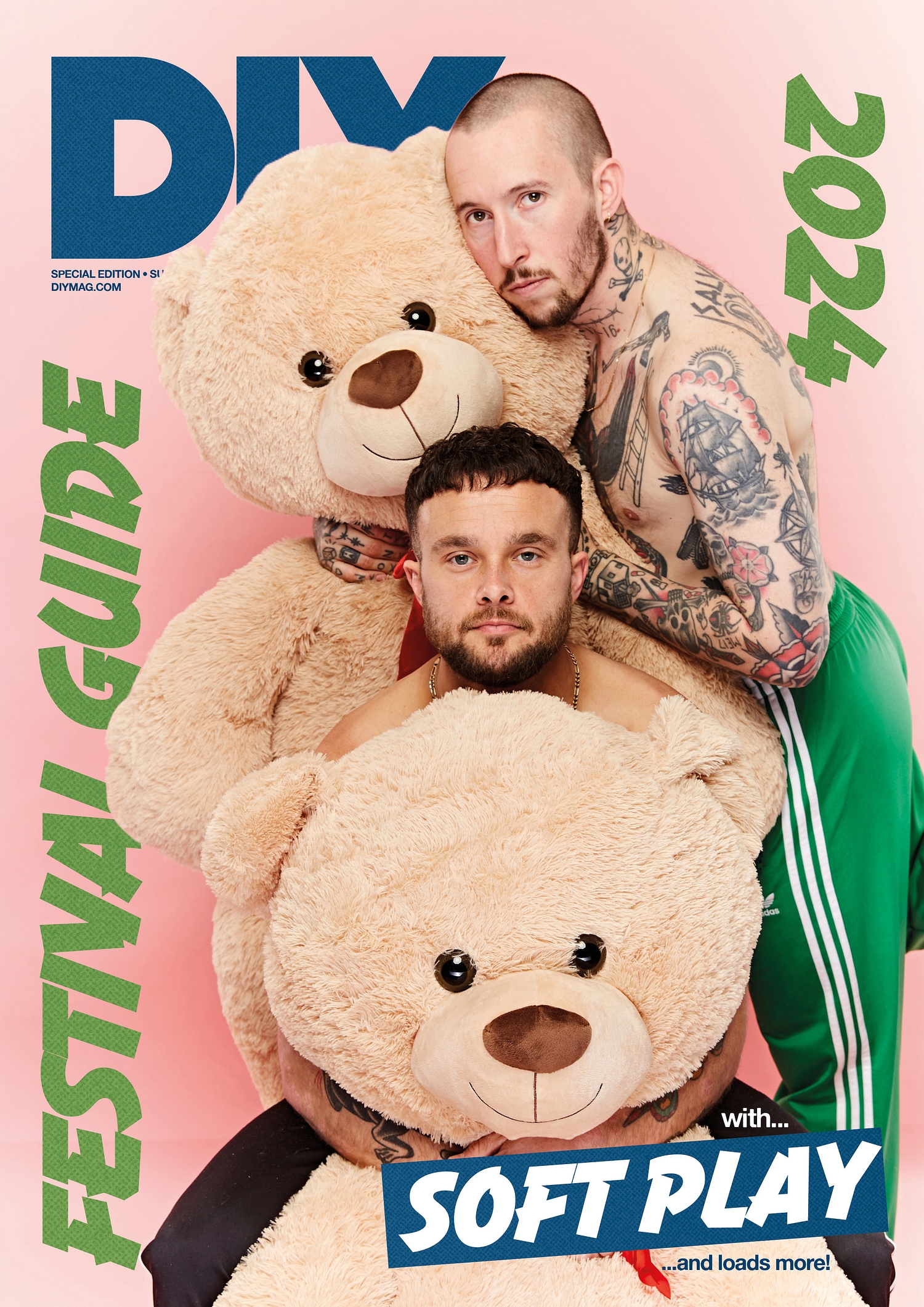Interview Wild Beasts: ‘There’s Always Another Band Who’s Crazier Than You’
Wild Beasts talk through the harsh realities of touring with Derek Robertson.
Progression is not something that gets mentioned much in certain indie circles, mainly because very few acts get to experience it. Fewer still use it to hone their craft, to producer something deeper, wiser, or more profound. It’s one of the implications of the constant churn of what’s hot and what’s not and sadly, it’s getting worse, not better. Still, anyone familiar with the work of Kendal’s finest will know of their ability to buck the trend, and it was refreshing to see that, even when up against the hype machine that is Abel Tesfaye, aka The Weeknd, they still drew one of Primavera Sound’s biggest, and most enthusiastic, crowds to the massive Ray Ban stage – their performance was, of course, immense. Modest and polite to a tee, Hayden Thorpe and Chris Talbot sat down with us earlier in the day to chat about the monotony of touring, line-up clashes, and why they are pining for trips to their local ALDI.
You’ve been touring pretty constantly since ‘Smother’ was released last year. How have fans been reacting to all the new material?
Hayden: Well, this is show 113 of the ‘Smother’ campaign, so it’s been a long, long stretch. We’ve all been so heartened by the response, because I think in retrospect, the album’s been out for more than a year now, and it maybe wasn’t the most obvious or high-impact of albums when it came out, it was more of a slow burner. It takes a bit more patience and heart to understand it, and I think in that way we’ve been incredibly privileged to have people pay attention to it.
Because it was a bit different, were you worried about how it would be received by fans?
H: No, we were very confident. We felt like we were on a roll, I suppose.
Chris: Exactly. We’d just come out of the ‘Two Dancers’ campaign, which had been incredibly successful, and we just had this fearless approach, like when you first start writing music. We had a brief meeting before we started, and we just decided we wanted to create something beautiful and not worry about how it was gonna be played live. When it came to thinking about arrangements, it was a bit of a challenge, but it wasn’t something we were scared of initially.
Last time you were here (2010), you played on a smaller stage in the blinding sunshine. This time, you’ve got a prime spot on a main stage – how does it feel to see your name up at the top of the promotional posters?
H: It doesn’t feel as weird as I thought it would be. We saw Fuck Buttons on that (Ray Ban) stage when we here two years ago, and it really blew our minds – the atmosphere, the deafening intensity of volume – it’s an incredible amphitheatre. At that point, we thought it was a pinnacle to try and reach for, a level to get to if you like, and in a nice way, now we have that slot, it doesn’t feel as uncomfortable as I thought it might. Maybe that’s a good sign, to not be petrified, and if you feel you have something to say and there’s meaning to what you do, the rest is kind of secondary I suppose.
Now that you have a greater wealth of material to draw on, is it harder to come up with setlists for festivals, when you have very strict limits on how long you can play?
C: It can be frustrating, yes, but to be honest, it comes down to the logistics of a show, and sometimes what makes a show smoother and, I hate to say it, but easier to play. We don’t get stuck in a rut with it, or beyond our comfort zone, but when you start operating at a certain level, you want to show yourself to people at your best.
H: You also have a responsibility to play what you predict that people will want to hear. You have to step outside yourself and think “What would somebody coming to see us here want to hear?” and I think that’s really important to live out people’s love of the record in front of them. It’s a real responsibility, one we don’t take lightly. We don’t use backing tracks, we don’t use any trickery, we just come on and play, as a band, and that’s key to the trust that we want to share with people and our fans.
At festivals, some bands like to get in and get out as it were, playing their set and then leaving. Others like to hang around for a few days, soak up the atmosphere, and check out other acts. Which category do you fall into?
H: It depends from festival to festival really, and you end up playing such diverse events. Primavera is the cream of the crop, as it were. I mean tonight you have Beach House, Michael Gira, we clash with The Weeknd…
That’s probably the most annoying clash of the whole festival.
H: Well, when we first accepted this slot we were due to clash with Beach House and Bjork, which was frankly terrifying!
C: We played Glastonbury last year and we were offered the Saturday night headline slot on the park stage, which meant we were up against Coldplay, The Chemical Brothers, and I think the Black-Eyed Peas. To be honest, those are the sorts of bands you want to be fighting against, ‘cause we offer an alternative to what they do, and it’s an alternative we strongly believe in. But unfortunately at Primavera, you end up against someone who is perhaps in a similar domain to you, and someone else who intrigues you, and you kind of want to go check them out. It’s the one downside of having such an amazing line up.
With such a large number of bands in one place, and such a party atmosphere, things have been known to get a little crazy here. Will you be joining in the fun and games later, after you’ve played?
C: Ha! No, I don’t think so. The whole rigmarole of coming in and bumping into other bands all the time doesn’t really appeal to me. In saying that, the pool here is incredible, so I’m up for hanging out there.
H: The problem with being in a band is, there’s always another band who’s crazier than you, or one with better shoes and cooler sunglasses, so our tactic tends to be to hide away rather than compete.
You mentioned this is gig number 133 – how many do you have left on this tour?
H: Ten? Something like that.
C: Yeah, it’s ten.
H: It feels good being this side of the void, as it were…
C: We don’t have long left on the road.
H: There was a point this time last year when we were looking down the barrel [of a long tour]… and it’s a long, long barrel!
C: When you have eight weeks of back-to-back shows, and you pull out the stops every night, it can be like you’re stuck down a well and you can’t get out.
H: The fear is when you are facing a schedule like that, and you know what you’ve got to put into it as a person, for people to get out of a show what they should get out of it, and you know you’ve got to give so much of yourself that at the end of the eight weeks, there’s not a lot left, you know? There’s nothing you can do about it if you want to play a genuinely great show, and in fact the hour-and-a-quarter on stage tends to be absolutely glorious – it’s the other twenty-three that are tedious and boring.
It’s always intrigued me how people react to differently to that initial rush of being successful, living the dream, that “this is what I’ve always wanted to do” moment…and then you’re off on tour for the next two years and have to deal with the unglamorous grind of life on the road.
H: It can be really difficult, because there’s this duality of feeling guilty for being daunted because you know close friends who’d give anything to be in that position, and the flip side of that is accepting this is not the fundamental meaning and reason for doing what you’re doing. Being on tour for two years separates you from that vital and pivotal reason for doing it, which is the feeling that you have something relevant to say. Everything blurs into one after a point, and you become less adept at picking out what is interesting – it just becomes this hungover blur – and you become frightened of “Will that thing I thought I had still be there at the end of all this?” You feel like the writer or the artist who does a job they hate for six months, just so they can do what they love for the other six months. It’s weird, after two months you get to the point where you can’t always live for tomorrow, you have to drill yourself to do it, and remind yourself of the reason’s why you are doing it. Living in the present becomes quite a task, and it’s often a difficult place to be…but at the same time, it’s a brilliant place to be as a writer ‘cause you’re living on the fringes of society, you’re constantly observing and in a transitional mode. You get this great birds eye view of life, and people, which is a rare state.
With only a few dates left, what does this summer and beyond hold for Wild Beasts? What’s your plan?
H: It’s looking quite loose at the moment. We’ve found ourselves in a position where we want to make it right for us I suppose, it’s been a quick turnover of three albums in retrospect.
C: We’ll have a couple of months off I think, that’s definitely on the cards. Not that we’re sick of the sight of each other, but it isn’t normal for four twenty-five year old boys to spend this much time together. You do naturally need to take a step back and take stock, and I think it’s the same for all of us. There are girlfriends to look after and houses to clean, so we’ll be doing the normal, boring stuff for a while.
H: I think that the atmosphere that we live and work in now, and I’m not accusing anyone of this by the way, but it’s a hard task not to have your ego inflated to a point, or your version of reality be driven into a corner that makes you completely useless in everyday life. Once you reach that point, that’s when artists start to struggle to have anything to say, and I think that’s where the “difficult” second and third album problem comes in, because people have nothing interesting to say. They’ve seen the same hotel room, or the same van, for the last couple of years, and I think one of the major points of art in general is so people can see themselves reflected in it and feel some kind of compassion or hope. If you’re not in a position to be a compassionate person, and instead you become very egocentric, that’s not a good place to write from. It’s important to re-engage with the fundamentals of who we are, even though we’ve known each other since we were five or six. The nuts and bolts of everyday life are inspirational in comparison to a lot of this [touring], which is kind of contradictory in a sense.
: So you’ll be down the shops buying bread and milk?
H: Exactly. I’ll be down at ALDI, trying to find the cheapest butter I can.
Wild Beasts new album ‘Smother’ is out now via Domino.
Read More
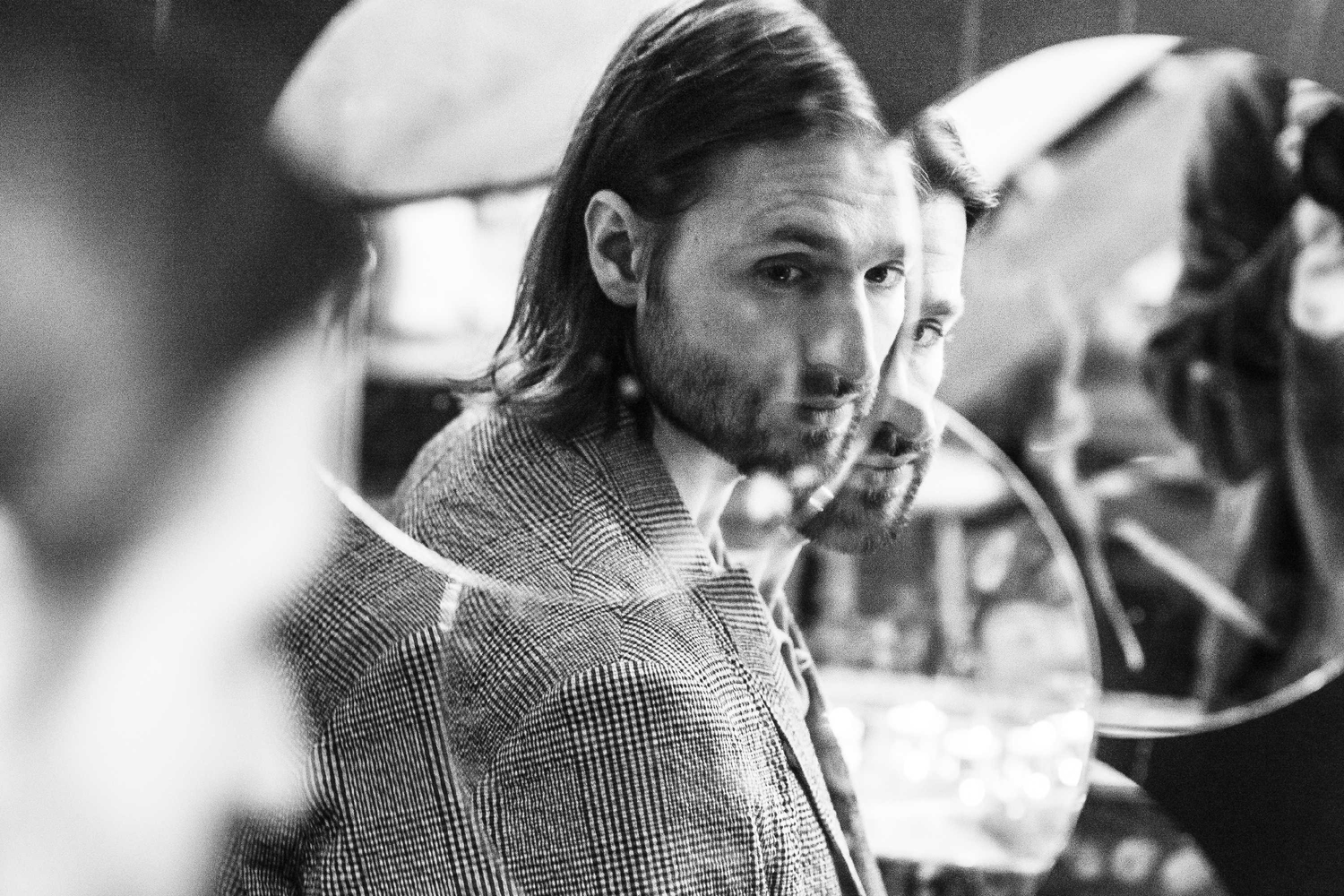
Suspending the madness: Hayden Thorpe
On his debut solo album 'Diviner', the former Wild Beasts frontman finds spiritual freedom in surrendering yourself to the universe, and the power of carving out new beginnings.
12th April 2019, 12:05pm
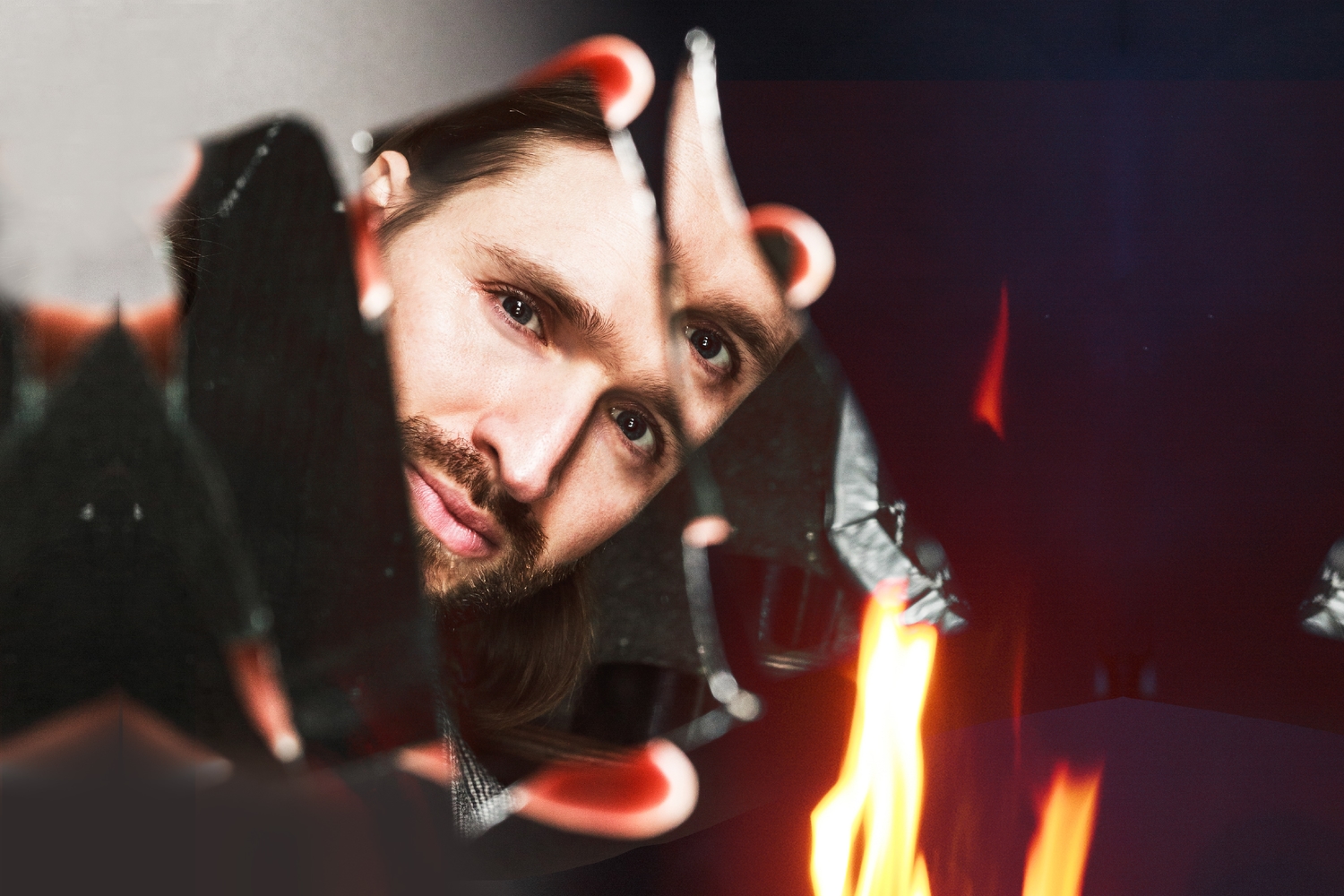
Hayden Thorpe fronts the April issue of DIY
Also featuring Stella Donnelly, Foxygen, PUP, Whitney and more, the new mag is out on Friday (12th April).
9th April 2019, 12:00am
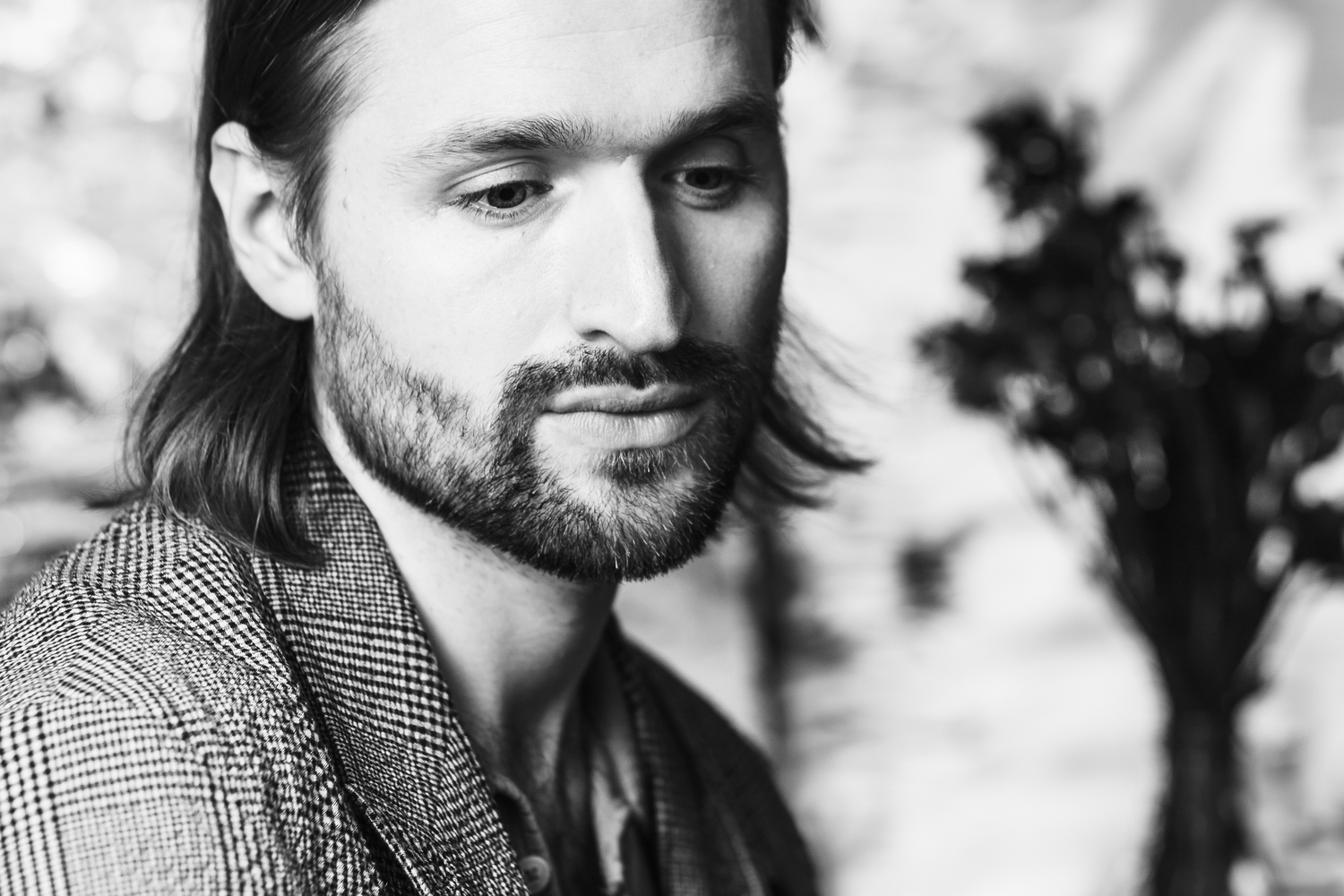
Hayden Thorpe: “At times it felt like trying to land a jumbo jet without the qualifications”
The former Wild Beasts frontman talks new beginnings in the April issue of DIY - preview our new cover feature.
9th April 2019, 12:00am
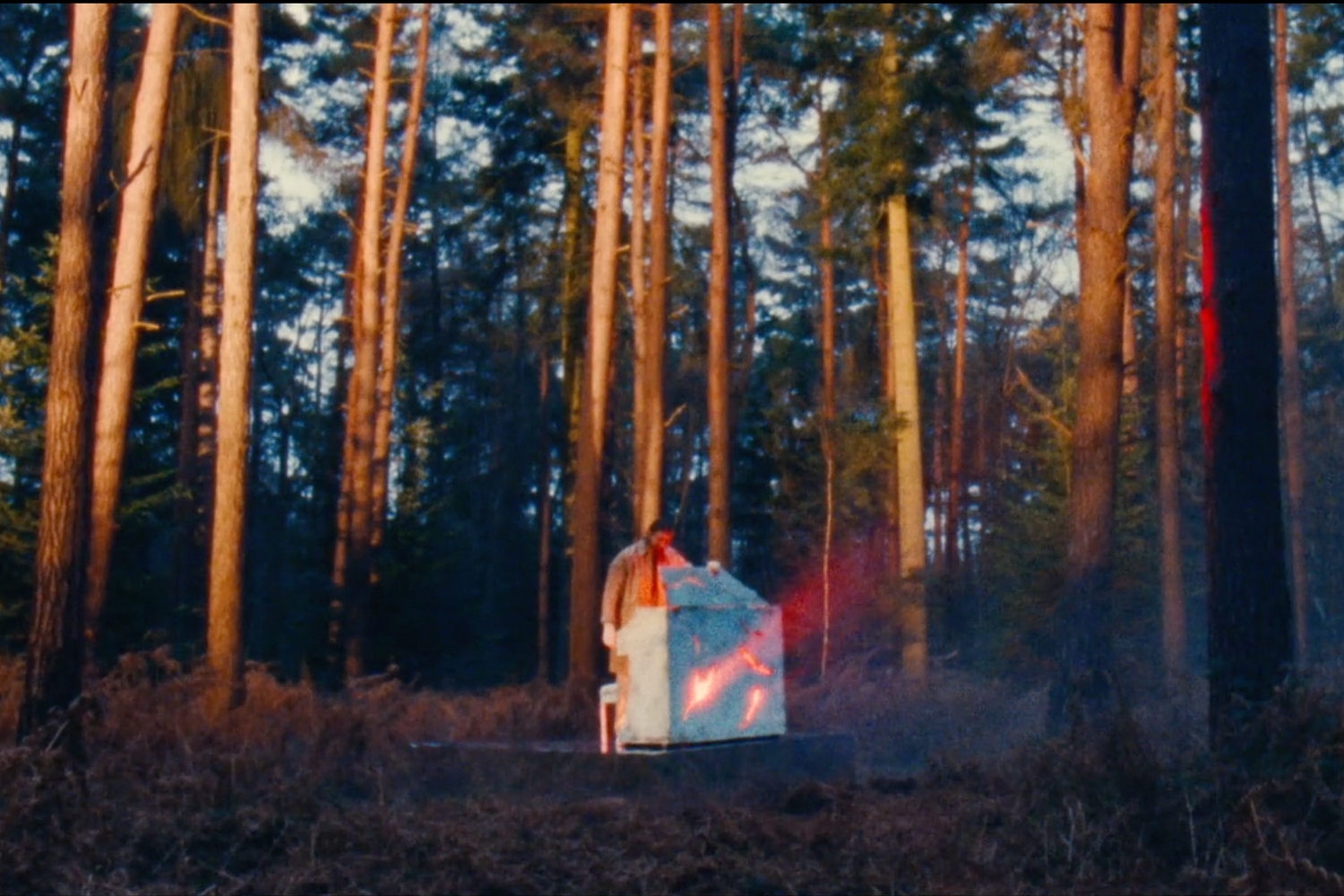
Former Wild Beasts frontman Hayden Thorpe returns with debut solo track ‘Diviner’
The tender offering comes along with a gorgeous new video.
21st February 2019, 12:00am
Featuring SOFT PLAY, Corinne Bailey Rae, 86TVs, English Teacher and more!
